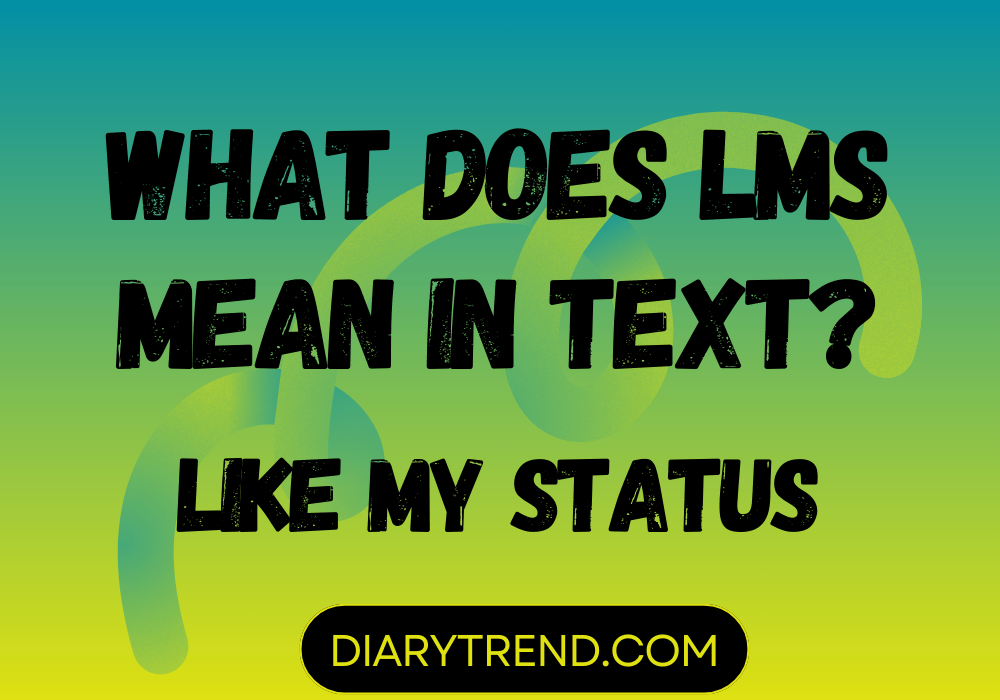In the ever-evolving landscape of digital communication, acronyms have become a fundamental part of online vernacular, reflecting the quick-paced, character-saving ethos of internet interactions. Among these acronyms, “LMS” stands out as a significant term, especially within the realm of social media. LMS, which stands for “Like My Status,” is not just a phrase; it encapsulates a social dynamic unique to the digital age.
The Genesis of LMS
To understand LMS, one must delve into its origins. Emerging from the early days of social media platforms like Facebook, LMS became a tool for users to engage with their network in a simple, interactive way. It was a direct appeal to friends and followers: If you appreciate or relate to my post, show it by hitting the ‘like’ button. This seemingly straightforward mechanism resonated with a wide audience, quickly becoming a staple in online interactions.
LMS and Social Media Dynamics
The use of LMS reflects a broader shift in how we communicate and seek validation in the digital age. Social media platforms are built on the currency of likes, comments, and shares. In this ecosystem, LMS acts as a straightforward solicitation for this currency. It’s a way for users to gauge the popularity or relatability of their content. When someone posts a status with the acronym LMS, they’re not just seeking likes; they’re inviting a form of digital acknowledgment and interaction from their community.
Psychological Implications of LMS
The phenomenon of LMS also opens a window into the psychological impacts of social media. The quest for likes, as encouraged by LMS, can be seen as a quest for social validation. Likes are often interpreted as a measure of social approval or popularity, which can significantly affect a user’s self-esteem and sense of belonging. This aspect of LMS highlights the complex relationship between social media use and mental health.
LMS in Marketing and Influencer Culture
Beyond personal use, LMS has found a place in the world of digital marketing and influencer culture. Brands and influencers often use LMS as a call-to-action to boost engagement on their posts, thereby increasing their visibility and influence. In this context, LMS is more than a request for likes; it’s a strategic tool in the arsenal of digital marketing, used to enhance engagement metrics and build a brand’s online presence.
Evolving Usage of LMS
While LMS started as a phenomenon predominantly on Facebook, its usage has transcended across various platforms, including Instagram, Twitter, and Snapchat. Each platform has its unique interaction dynamics, but the core principle of LMS remains the same – a call for engagement. However, the evolution of social media algorithms and the changing nature of online interactions have also influenced how LMS is perceived and used. It’s no longer just about likes; it often extends to comments, shares, and other forms of engagement.
Cultural Impact of LMS
LMS is not just a social media phenomenon; it reflects broader cultural shifts. In a world where online presence is increasingly intertwined with real-world identity, LMS becomes a way to navigate social recognition and belonging. It’s a lens through which the dynamics of digital culture, including aspects of peer influence, social validation, and the human need for connection, can be examined.
The Future of LMS
As social media continues to evolve, the role and relevance of LMS might change. New platforms, changing user behaviors, and shifting cultural contexts will influence how such acronyms are used and perceived. However, the underlying principle that LMS represents – the human desire for connection and recognition in the digital space – is likely to remain a constant.
Conclusion
LMS, or “Like My Status,” is more than just an acronym; it’s a reflection of the social dynamics of the digital age. From its roots in the early days of social media to its role in digital marketing and influencer culture, LMS embodies the evolving nature of online communication. It highlights the intersection of social validation, digital interaction, and the human quest for connection in an increasingly digital world. As we navigate this landscape, understanding the nuances of terms like LMS becomes crucial in understanding our digital selves and the world we inhabit online.
